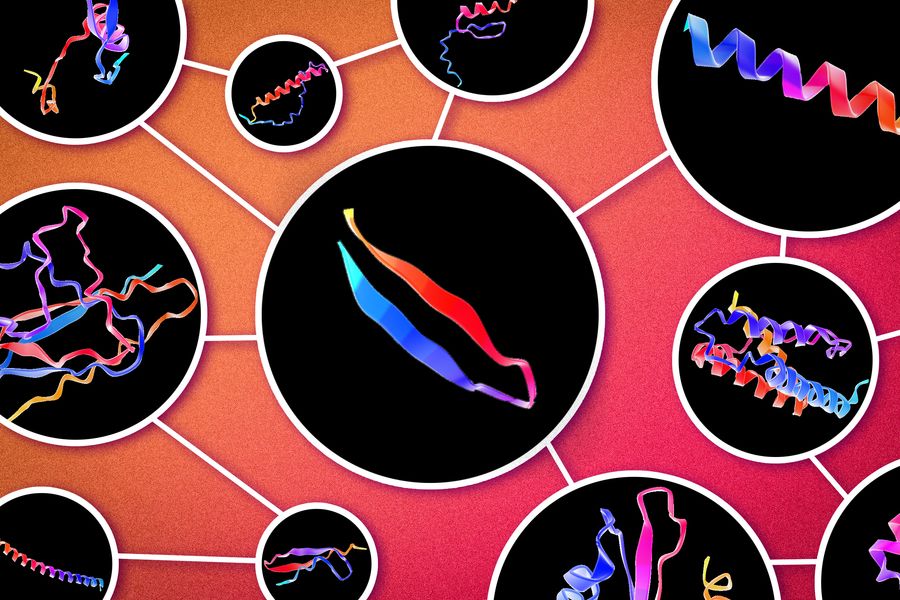AI designs novel proteins
The AI system is still in the evolution stage, but it has already shown that it has the power to completely revolutionize the field of protein engineering.

Scientists at MIT have created an AI system that can build novel proteins with precise structural designs, marking an incredible breakthrough in the field of bioengineering. The research, which was published in the journal Chem, demonstrates the promise of artificial intelligence in protein engineering and drug development.
The building blocks of life, proteins are essential for many biological processes. In order to create new methods for chronic conditions like cancer and diabetes, scientists have been researching proteins for decades. But creating proteins with particular activities has proven to be a challenging and intricate task.
According to senior author Markus Buehler, the Jerry McAfee Professor in Engineering and professor of mechanical and civil and environmental engineering, the models can create new proteins by learning the biochemical relationships that govern how proteins form. Designing proteins that nature has not yet discovered presents such a vast design space that it is impossible to solve it using a pencil and paper alone. You need to understand how DNA encodes amino acids, which subsequently combine to form protein structures. This is the language of life. We truly couldn't accomplish this before deep learning, says Buehler, who is also a member of the MIT-IBM Watson AI Lab.
The AI system developed by MIT researchers is capable of generating novel proteins with specific structural designs that can bind to target molecules. The system, called AlphaFold-Struct, uses a combination of deep learning and Monte Carlo simulations to design proteins that are stable and functional. The AI system is trained on a large dataset of protein structures, allowing it to learn the rules that govern protein folding and stability.
The system has already shown promising results in the lab. The ability to design and create a unique protein that binds to a particular antibody allowed researchers to advance the development of new cancer and other illness therapies. The AI system was also able to predict the structures of several proteins with high accuracy, which could potentially save years of experimental work.
The potential applications of this AI system are vast. It could be utilized to create novel proteins for industrial processes, bioremediation, and medication delivery. The method might also be utilized to manufacture biofuels or enzymes that can degrade contaminants.
The AI system is still in the evolution stage, but it has already shown that it has the power to completely revolutionize the field of protein engineering. The system could lead to the development of new drugs that are more effective and have fewer side effects, ultimately improving the quality of life for millions of people around the world.
In conclusion, the AlphaFold-Struct system developed by MIT researchers represents a significant step forward in the field of protein engineering. This AI system has a wide range of possible applications some of which could result in the discovery of novel treatments for some of the most complex modern diseases. The breakthrough demonstrates the power of artificial intelligence in transforming the way we approach complex scientific problems.





